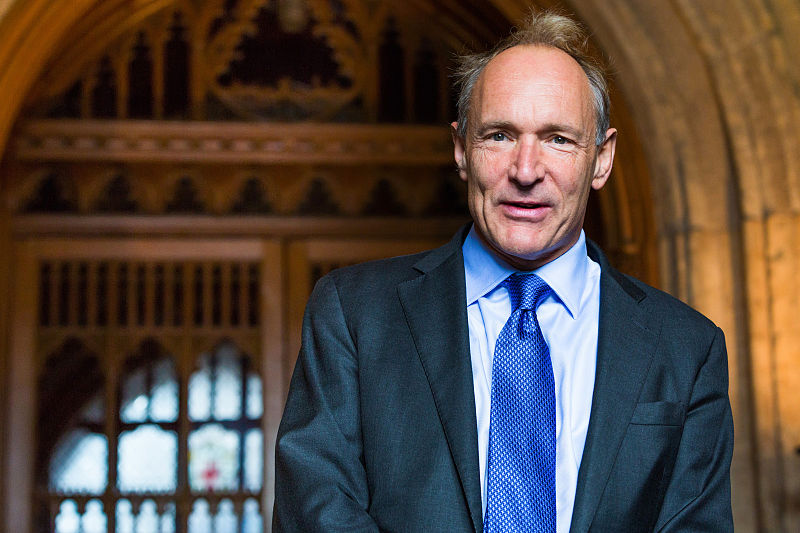
Sir Tim Berners-Lee created the World Wide Web 28 years ago. Since then, the web has evolved into a massive networking platform where users come to connect, work, and learn. However, Berners-Lee believes there are still areas that must be addressed before the web can truly be a platform that benefits all — notably in the area of “fake news.”
“[March 12] marks 28 years since I submitted my original proposal for the world wide web. I imagined the web as an open platform that would allow everyone, everywhere to share information, access opportunities and collaborate across geographic and cultural boundaries. In many ways, the web has lived up to this vision, though it has been a recurring battle to keep it open,” Berners-Lee wrote on the Web Foundation’s blog, a foundation Berners-Lee create to create a better web for all.
Berners-Lee points out three challenges he has witnessed over the past 12 months: The ability to easily spread misinformation, lose of control over personal data, and political advertising.
One of the biggest problems Berners-Lee sees is that too many users obtain their news from social media sites and search engines that are designed to make more money as more people click on the link bait. “And, they choose what to show us based on algorithms which learn from our personal data that they are constantly harvesting. The net result is that these sites show us content they think we’ll click on – meaning that misinformation, or ‘fake news’, which is surprising, shocking, or designed to appeal to our biases can spread like wildfire,” he wrote. Berners-Lee also believes data science and bots with bad intentions too easily spilt through the system and spread misinformation for financial and political gain.
Too many users agree to give websites their personal data in order to access free content, according to Berners-Lee. “As our data is then held in proprietary silos, out of sight to us, we lose out on the benefits we could realise if we had direct control over this data, and chose when and with whom to share it. What’s more, we often do not have any way of feeding back to companies what data we’d rather not share,” he wrote.
And lastly, political advertising online has evolved to directly target users, and is sometimes being used in unethical ways. “Targeted advertising allows a campaign to say completely different, possibly conflicting things to different groups. Is that democratic?,” Berners-Lee wrote.
To address these web challenges, Berners-Lee believes users need to work with web companies and strike a fair data balance; encourage gatekeepers to block misinformation; and close the internet blind spot associated with political campaigning.
The Web Foundation announced it will be tackling some of these problems in a new five-year strategy where it will research each challenge in more detail and provide proactive policy solutions.
“I may have invented the web, but all of you have helped to create what it is today. All the blogs, posts, tweets, photos, videos, applications, web pages and more represent the contributions of millions of you around the world building our online community,” Berners-Lee wrote. “It has taken all of us to build the web we have, and now it is up to all of us to build the web we want – for everyone.”






